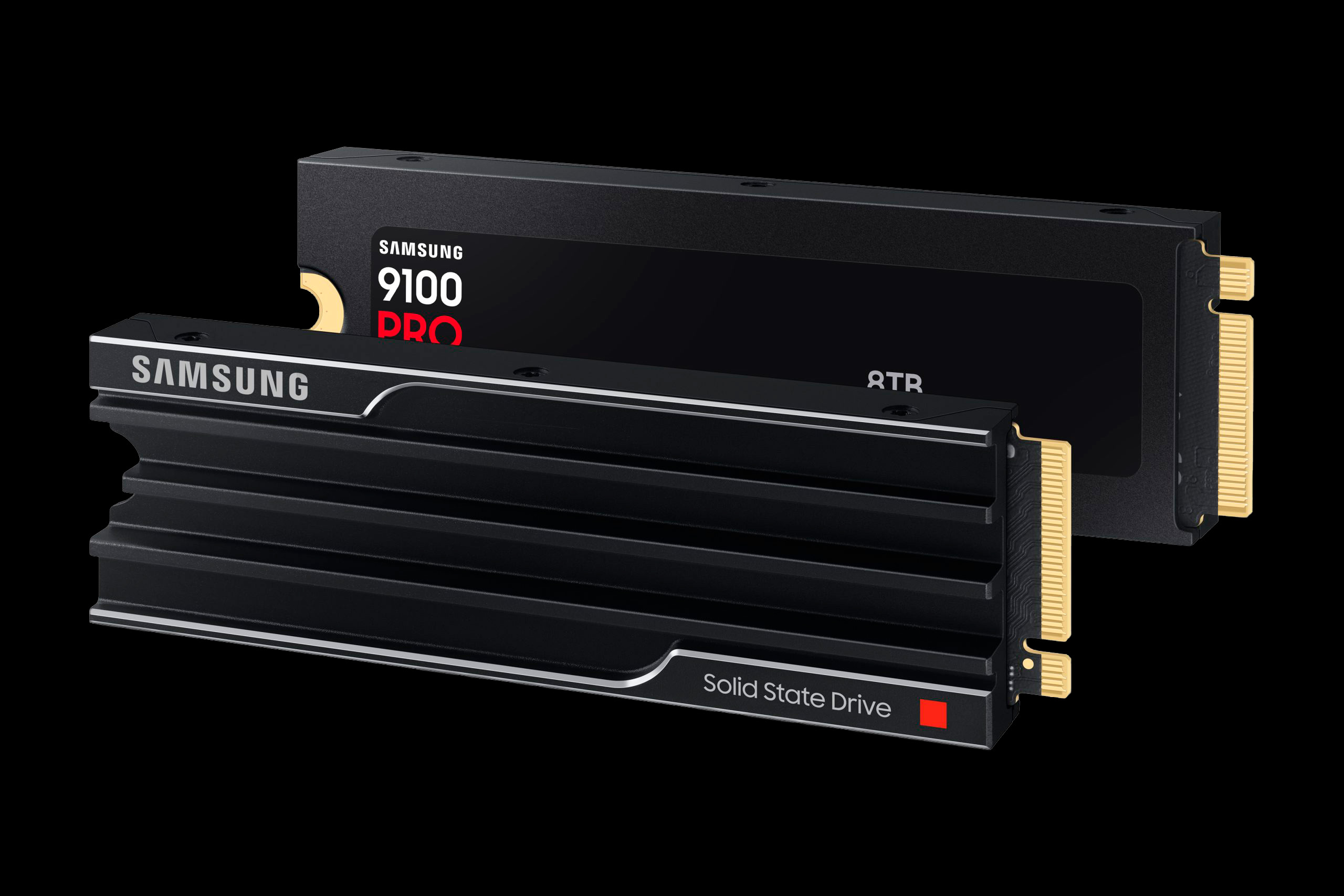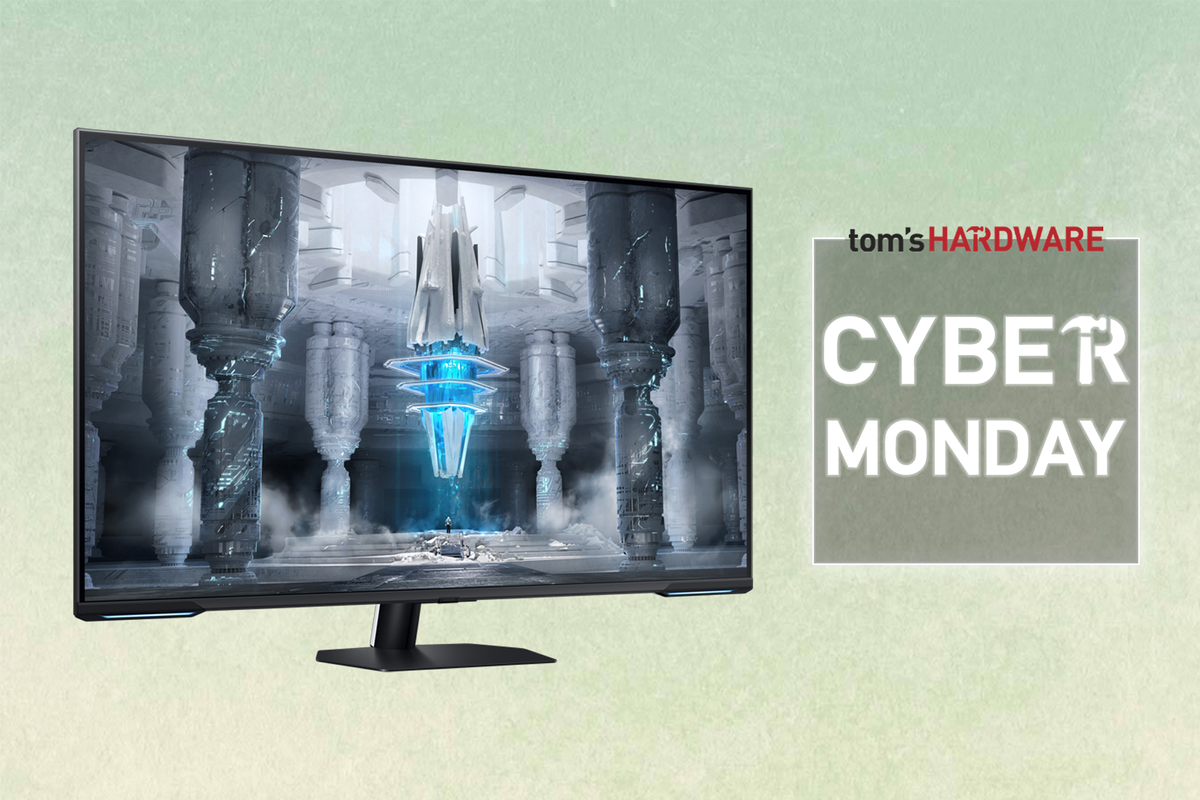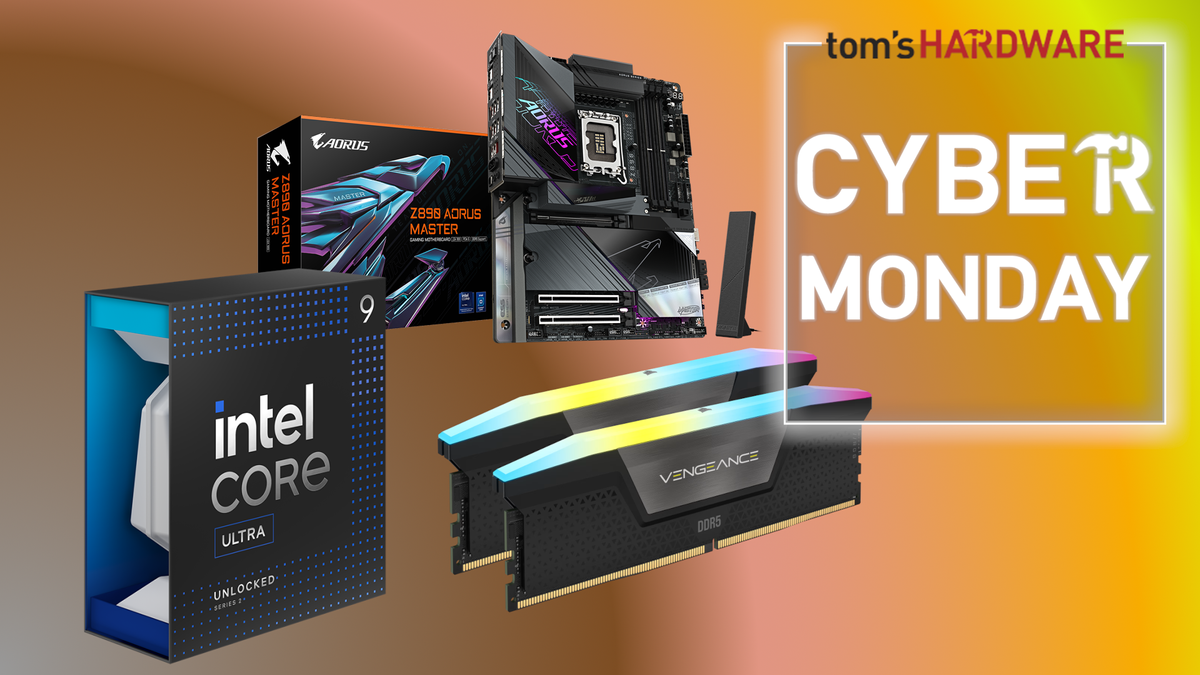The Samsung 9100 Pro is now available in the 8TB configuration. Samsung has established a $999.99 MSRP on its website for the bare drive, while the heatsink model retails for $1,019.99.
The Samsung 9100 Pro incorporates Samsung's proprietary Presto SSD controller, 236-layer TLC V8 NAND flash memory, and 8GB of LPDDRX. Although performance may occasionally decline slightly at higher capacities, the Samsung 9100 Pro 8TB maintains comparable speed to the 4TB variant, rendering both models among the fastest across all capacities offered by Samsung.
Similar to the 4TB SKU, the 8TB model provides sequential performance up to 14,800 MB/s for read operations and 13,400 MB/s for write operations. Furthermore, random performance scales up to 2,200,000 IOPS reads and 2,600,000 IOPS writes. The endurance of the Samsung 9100 Pro 8TB has doubled to 4,800 TBW in comparison to the 4TB drive's rating of 2,400 TBW.
The 8TB capacity does draw a bit more power, though. According to Samsung, the SSD consumes around 9.3mW (PS3 APST on) and 8.6mW (PS4 L1.2) in idle, which is up to 43% and 51% higher than the 4TB variant. Meanwhile, the active average power consumption is rated at 10.5W for read and 8.8W for write, roughly 17% and 7% more than the 4TB drive.
The Samsung 9100 Pro 8TB is now available for pre-order on Samsung's online store. The standard version costs $999.99, while the heatsink version is priced at $1,019.99. However, it shouldn't be long until the SSD is available from all the major U.S. retailers.
Follow Tom's Hardware on Google News, or add us as a preferred source, to get our up-to-date news, analysis, and reviews in your feeds. Make sure to click the Follow button!

 2 months ago
40
2 months ago
40





 English (US) ·
English (US) ·